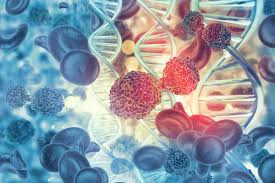Strawberries: A Sweet Ally Against Fatty Liver and Diabetes

IIE DIGITAL DESK : The development for dietary health, recent studies have highlighted the potential of strawberries in combating non-alcoholic fatty liver disease (NAFLD) and type 2 diabetes. These findings suggest that incorporating strawberries into one's diet may offer a natural strategy to manage and prevent these prevalent metabolic disorders.
A 2023 clinical study conducted by researchers at the Illinois Institute of Technology revealed that daily consumption of strawberries can lead to notable health improvements. Participants who consumed 2.5 servings of strawberries daily over a 12-week period exhibited reduced LDL cholesterol levels, enhanced blood vessel function, decreased inflammation, and improved insulin resistance. These changes are particularly significant, as insulin resistance is a common underlying factor in both type 2 diabetes and NAFLD.
Dr. Britt Burton-Freeman, a professor involved in the study, emphasized the broader implications of these findings. "The Global Burden of Disease study ranked low fruit intake as one of the top three risk factors for cardiovascular disease and diabetes," she noted. "Bridging the 'fruit gap' by increasing fruit intake—especially with fruits like strawberries—can lead to remarkable health improvements."
Beyond their impact on insulin sensitivity, strawberries are rich in antioxidants, including anthocyanins and flavonoids, which contribute to their anti-inflammatory properties. These compounds not only support heart health but also play a role in reducing oxidative stress, a factor implicated in the progression of both diabetes and liver disease.
For individuals aiming to harness these benefits, incorporating strawberries into the diet is both simple and enjoyable. Nutritionists recommend consuming at least three servings per week, which can be easily achieved by adding strawberries to smoothies, salads, or as a standalone snack. Their low glycemic index also makes them a suitable fruit choice for those managing blood sugar levels.
While strawberries offer promising health advantages, experts advise that they should complement, not replace, other medical and lifestyle interventions. Regular physical activity, a balanced diet, and routine medical check-ups remain essential components of managing and preventing metabolic diseases.
The humble strawberry emerges as a flavorful and health-promoting fruit, offering potential benefits in the fight against fatty liver disease and diabetes. As research continues to uncover the therapeutic properties of natural foods, strawberries stand out as a sweet addition to a health-conscious diet.
You might also like!















